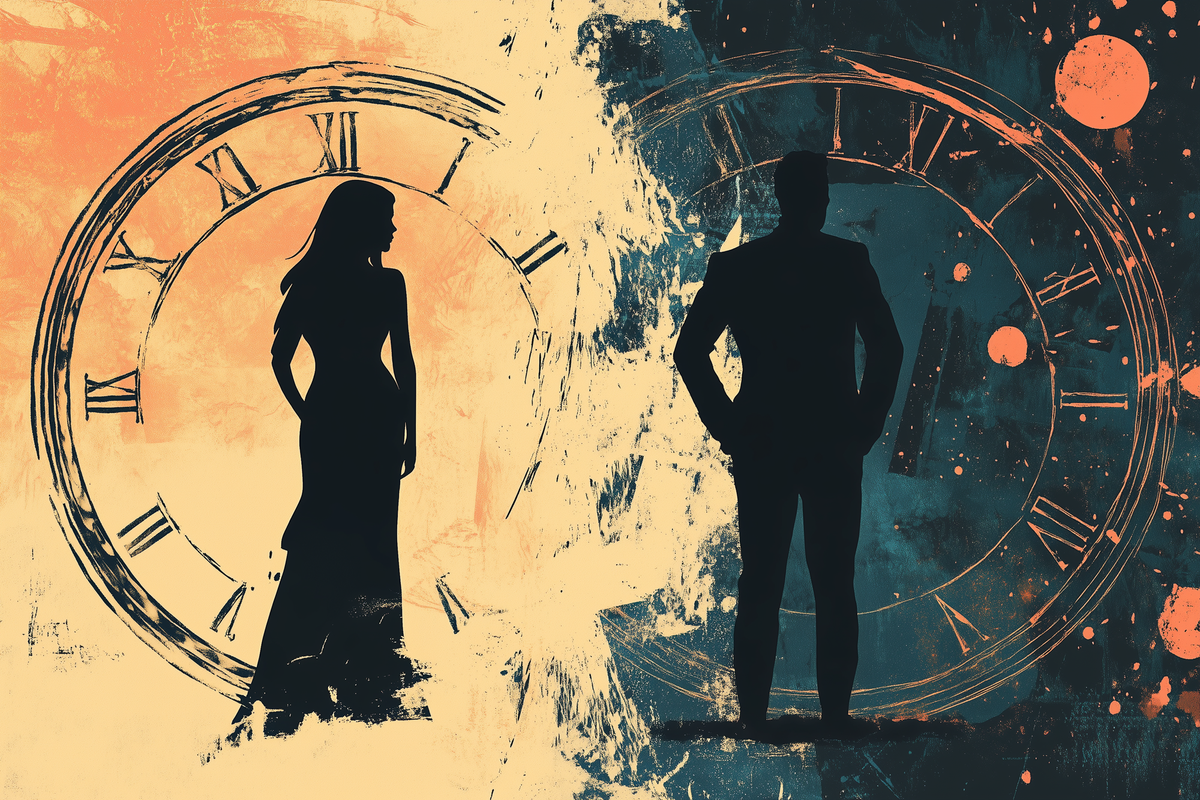The Stranger You Already Know

You don't talk about it because no one asks.
Because if they did... Christ, where would you even start? How do you tell the guy bagging your groceries he was your son in 1436? That dimpled smile, same as when he took his first steps in a Prague ghetto while plague rats scratched at the walls. How do you tell the barista with the septum piercing that in 1812 you held her hand while cholera turned her insides to water?
How do you look anyone in the eye and say: "We were lovers when Rome fell."
They'd want details. They'd want to know who they were back then: emperors, slaves, merchants, whores. And worse: who they weren't. Who they'll never be again. Most people think they want the truth until it arrives with its suitcase of burning libraries and blood-soaked battlefields, until they're choking on the smoke of names they can't pronounce.
But her.
She's different. Always has been.
Tuesday. 3:47 PM. The bookstore smells like dying paper and other people's abandoned dreams.
She's standing in Ancient History, hip cocked against the shelf, flipping through The Odyssey. Black nail polish, chipped at the edges. That dimple in her right cheek, the one that made you genuflect before Apollo's altar 2,300 years ago, swearing oaths you couldn't keep. She's biting her bottom lip. Blood under the surface, almost breaking through.
Same gesture. Same angle. Same way she bit it when she promised to marry you in 1673.
Then didn't.
Your mouth tastes like car keys left in the snow. Like the space between lightning and thunder.
Time is a bullet train, and memory's the station you can never leave. Every departure, the same arrival. Every hello, another goodbye wearing different clothes.
She looks up. Gray eyes. No, green. No, both. The color of the Aegean before a storm.
"Sorry," you say. Your voice sounds like gravel in a blender. "Thought you were someone else."
Her head tilts. Thirty-seven degrees. You've measured that angle across centuries.
"Yeah?"
You want to grab her shoulders. Feel the bones beneath her vintage band tee (The Cure, of course it's The Cure) and tell her everything. Tell her: I was a Spartan and you were Helen and I died beneath Troy's walls trying to drag you home, your name the last clean thing in my throat before the arrow found it. Tell her about the thousand lifetimes spent finding her face in crowds, in armies, in mass graves. Tell her about the tent in the Sahara where you fed each other dates and promised forever like idiots who thought the word meant something.
The fluorescent lights hum. Someone's kid is screaming three aisles over.
"You look familiar," you manage.
Understatement of the millennium. Several millennia.
She shifts her weight. The floorboard creaks, same pitch as the ship that took you both to the New World in 1587. You remember how seasick she got. How she threw up on your boots and laughed until she cried.
"Do I?" Her fingers drum against the book's spine. Nervous habit. She had it when she was Cleopatra's handmaiden. Had it when she was a Vietnam nurse. Has it now.
The universe inhales. Holds.
Her laugh cuts through the silence like a straight razor through silk. "Maybe we met in another life."
The words hang there.
Perfect.
Terrible.
Your knuckles go white. You're gripping your car keys hard enough to draw blood. The sharp edge of metal bites into your palm. A small pain, manageable. Not like watching her die of consumption in 1847. Not like finding her body in Pompeii, frozen mid-scream.
"Yeah," you say. "Maybe."
You leave first. You always leave first now.
Behind you, the woman you've loved since before Christ got famous walks the other direction. Her boots click against linoleum.
Click-click-click.
This time, she doesn't look back.
Neither do you.
But you know, the way you know your own worthless bones, that in seven years, or seventy, or seven hundred, you'll see that dimple again. Different face, same soul. And you'll want to tell her everything.
But you won't.
